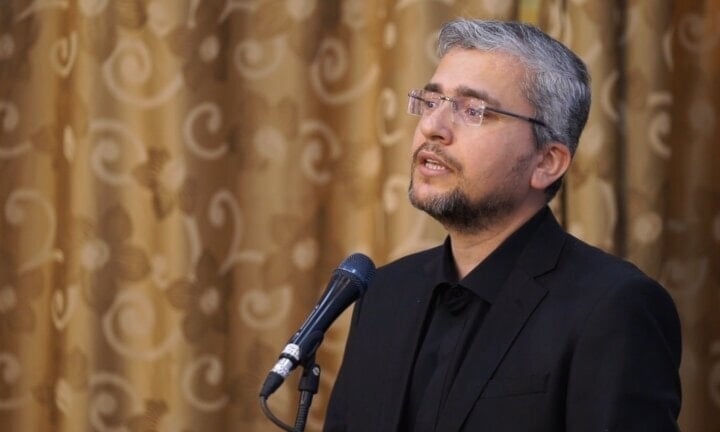No reason for Iran to remain party to NPT: Security committee spox
Iran rejects revived UN sanctions, warns of decisive response, and considers withdrawal from the Nuclear Non-Proliferation Treaty amid Western pressure.
-

Ebrahim Rezaei, the spokesperson for Iran's National Security and Foreign Policy Committee, in an undated photo (MEHR)
Ebrahim Rezaei, the spokesperson for the National Security and Foreign Policy Committee of the Iranian Shura Council, expressed his belief that "Iran should withdraw from the Nuclear Non-Proliferation Treaty," considering that "there is no reason for the country to party to it."
Rezaei noted that the Shura Council "has not taken any decision on exiting the treaty," explaining that this requires a decision at the level of the country's leadership and three authorities.
While Iran's parliament has not yet taken a decision, earlier this month it discussed an urgent proposal to withdraw from the Nuclear Non-Proliferation Treaty (NPT) in the presence of the Guardian Council.
E3 countries reimpose sanctions
Rezaei's remarks come after the E3 countries announced, at dawn on Sunday, the re-imposition of UN sanctions on Iran, a month after activating the snapback mechanism.
Iranian Foreign Minister Abbas Araghchi stressed that his country will not recognize any attempt to extend, revive, or implement those restrictions, and that any attempt to harm Tehran will be met with appropriate responses.
Iran's MoFA rejects US-European bid to reinstate terminated UN resolutions
In a statement issued on Saturday, the Iranian Foreign Ministry accused the three European states of exploiting the dispute resolution mechanism under the Joint Comprehensive Plan of Action (JCPOA) and UN Security Council Resolution 2231, stressing that restrictions on Iran’s peaceful nuclear program must be considered concluded by October 18, 2025.
The foreign ministry called the attempts of the US, Britain, France, and Germany to reinstate previously terminated UN resolutions "illegal, unjustified, and baseless."
European powers, the statement continued, initiated the snapback mechanism despite their own “gross non-performance” of JCPOA obligations. It also condemned their “explicit or implicit” support for US and Israeli military attacks on Iran’s nuclear facilities in June, calling it a violation of international law and the UN Charter.
Tehran underscored that both the US and European parties have acted in bad faith, breaching the spirit and letter of the nuclear deal and Resolution 2231.
No legal basis for revived resolutions
Iran’s Foreign Ministry said efforts to revive annulled UN Security Council resolutions have “no legal, ethical, or logical basis,” stressing that no obligations arise for member states. Tehran confirmed it conveyed this position in a letter to the UN Secretary-General on September 27, 2025.
The Ministry highlighted Iran’s past compliance with the JCPOA until a year after the US withdrawal and noted that its proposals to revive or renegotiate the deal were blocked by “Western bad faith.”
It also condemned US and Israeli strikes on Iranian nuclear sites in June, calling them “the peak of JCPOA violations,” and vowed to hold the aggressors and their European supporters accountable through legal means.
Iran vows to defend its rights
Despite recent agreements with the IAEA aimed at creating diplomatic space, Tehran said Western powers had escalated confrontation instead.
“The Islamic Republic of Iran will firmly defend its rights and national interests, and any move aimed at harming those interests will be met with an appropriate and resolute response,” the Ministry's statement concluded.
Statement by the Foreign Ministry of the Islamic Republic of #Iran regarding claim by three European countries, US on the reinstatement of terminated UN Security Council resolutions against Iran
— Foreign Ministry, Islamic Republic of Iran 🇮🇷 (@IRIMFA_EN) September 28, 2025
The Foreign Ministry of the Islamic Republic of Iran considers the action taken by… pic.twitter.com/wW3WkLnnw2

 3 Min Read
3 Min Read










